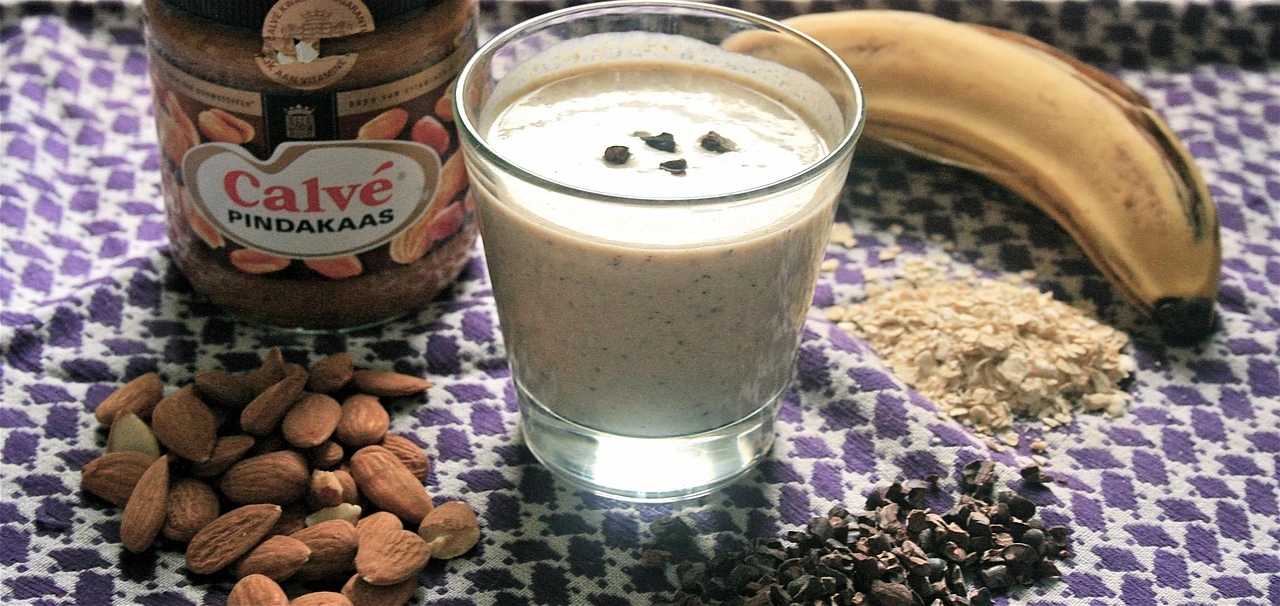Delicious and Nutritious: Almond Butter
1. Introduction
In recent years, almond butter has gained immense popularity as a delightful and nutritious food choice. Made from finely ground almonds, this creamy spread has captured the taste buds and hearts of health-conscious individuals. Not only does it offer a delectable flavor, but it also boasts an impressive nutritional profile that makes it a preferred option in many households.
Table of Contents
2. The Nutritional Value of Almond Butter
Almond butter is a powerhouse of essential nutrients. Packed with protein, healthy fats, vitamins, and minerals, it provides a wholesome and satisfying addition to meals and snacks. Comparatively, almond butter surpasses other nut butters in terms of nutrition, making it an attractive choice for those seeking a healthier alternative.
3. Health Benefits of Almond Butter

– Supporting Heart Health
The heart-healthy monounsaturated fats present in almond butter play a significant role in maintaining cardiovascular well-being. These fats help reduce bad cholesterol levels and promote good cholesterol levels, reducing the risk of heart diseases.
– Managing Blood Sugar Levels
Almond butter’s low carbohydrate content and high fiber content make it a suitable option for individuals aiming to manage blood sugar levels effectively. It helps prevent blood sugar spikes and crashes, providing sustained energy throughout the day.
– Aiding in Weight Management
Contrary to the myth that all fats lead to weight gain, almond butter’s healthy fats can actually support weight management efforts. The satiating properties of almond butter help control hunger and prevent overeating.
– Boosting Brain Health
Almond butter is rich in vitamin E, an antioxidant known for its cognitive benefits. Regular consumption of almond butter may contribute to improved brain health and memory retention.
4. Making Almond Butter at Home
Making almond butter at home is surprisingly simple. All you need are fresh almonds and a food processor. Simply roast the almonds, let them cool, and then blend them in the food processor until you achieve a smooth and creamy texture. For a delightful twist, add a pinch of salt or a drizzle of honey during the blending process.
5. Almond Butter in Culinary Creations
The versatility of almond butter extends far beyond being just a spread. It can be incorporated into a myriad of culinary creations, enhancing the flavor and nutritional value of various dishes. From creamy almond butter smoothies to savory almond butter sauces, the possibilities are endless.
6. Almond Butter vs. Peanut Butter: A Comparison

While both almond butter and peanut butter are popular spreads, they have distinct differences. Almond butter offers higher amounts of fiber, vitamin E, and calcium compared to peanut butter. Additionally, almond butter is a safer option for those with peanut allergies.
7. Buying Guide for Almond Butter
When choosing almond butter from the market, opt for varieties with minimal additives or sweeteners. Organic and natural almond butter options are often the healthiest choices, providing the full benefits without unnecessary additives.
8. Almond Butter for Fitness Enthusiasts
Fitness enthusiasts can benefit greatly from incorporating almond butter into their diets. Its protein content aids in muscle recovery, while its healthy fats provide a sustainable energy source for workouts.
9. Incorporating Almond Butter into a Kid’s Diet
For parents seeking healthier alternatives to traditional spreads, almond butter is a delightful option. Kids will love the creamy taste, while parents can rest assured that their children are getting essential nutrients for their growing bodies.
10. Almond Butter and Vegan Diet
Almond butter is a staple in many vegan diets, providing a valuable source of plant-based protein. Its rich flavor and versatility make it a favorite among those following a vegan lifestyle.
11. Allergies and Precautions
Although almond butter offers numerous health benefits, individuals with nut allergies should exercise caution. If you have a nut allergy, it’s best to avoid almond butter altogether to prevent potential allergic reactions.
12. Almond Butter in Skin and Hair Care
Beyond its culinary uses, almond butter finds a place in the world of natural beauty. It can be applied topically to promote skin and hair health, leaving them nourished and rejuvenated.
13. The Environmental Impact of Almond Butter Production
With the rise in almond butter consumption, there are growing concerns about its environmental impact. Almond farming requires significant water resources, making it essential for consumers to support sustainable and eco-friendly practices.
14. The History and Cultural Significance of Almond Butter
Almonds have a rich history dating back centuries. From ancient civilizations to modern times, almonds and almond butter have held cultural significance in various cuisines and traditions around the world.
15. Conclusion
In conclusion, almond butter stands as a delicious and nutritious addition to any diet. Its abundance of essential nutrients, health benefits, and culinary versatility make it an ideal choice for health-conscious individuals. Whether spread on toast, blended into smoothies, or used in savory dishes, almond butter is sure to delight the taste buds while nourishing the body.

Nutritional Comparison Avocado oil and olive oil
Avocado oil and olive oil boast distinct nutritional profiles that contribute to their respective health benefits. Avocado oil is primarily composed of monounsaturated fats, which are considered heart-healthy and aid in reducing bad cholesterol levels. It is also a rich source of vitamins E and K, which play vital roles in maintaining healthy skin and bones.
On the other hand, olive oil is renowned for its high content of oleic acid, a monounsaturated fatty acid that offers similar cholesterol-lowering benefits. Additionally, olive oil contains powerful antioxidants, such as polyphenols, which help combat oxidative stress and inflammation.
Health Benefits of Avocado Oil
Rich in Heart-Healthy Monounsaturated Fats
Avocado oil contains approximately 70% monounsaturated fats, making it an excellent choice for promoting heart health. These fats have been associated with a reduced risk of heart disease and may improve overall cardiovascular health.
Abundant in Vitamins and Minerals
Avocado oil is a nutrient-dense oil, packed with essential vitamins and minerals. Vitamin E, an antioxidant found in abundance in avocado oil, helps protect the body’s cells from damage caused by free radicals.
Potential Antioxidant Properties
Apart from vitamin E, avocado oil may also contain other antioxidants that help neutralize free radicals and prevent oxidative damage, potentially lowering the risk of chronic diseases.
Health Benefits of Olive Oil
The Mediterranean Diet Connection
Olive oil is a key component of the Mediterranean diet, which is associated with numerous health benefits, including reduced risk of heart disease, improved brain health, and better weight management.
Rich in Oleic Acid and Antioxidants
Oleic acid, the primary monounsaturated fat in olive oil, has been linked to anti-inflammatory effects and improved insulin sensitivity, contributing to better overall health.
Anti-Inflammatory Properties
The antioxidants present in olive oil, particularly polyphenols, have powerful anti-inflammatory properties that may help reduce inflammation and its associated risks.
Cooking Uses of Avocado Oil

High Smoke Point for Searing and Stir-Frying
Avocado oil’s high smoke point, usually above 500°F (260°C), makes it an ideal choice for high-heat cooking methods such as searing, stir-frying, and deep-frying.
Enhancing Dressings and Marinades
The mild, buttery flavor of avocado oil enhances salad dressings, vinaigrettes, and marinades, adding a rich taste to your dishes.
Baking with Avocado Oil
In baking, avocado oil can be used as a substitute for butter or vegetable oil, resulting in moist and tender baked goods with a subtle avocado undertone.
Cooking Uses of Olive Oil
Extra Virgin Olive Oil for Dressings and Dips
Extra virgin olive oil, with its robust flavor and fruity notes, is best suited for drizzling over salads, dipping with bread, and enhancing the taste of various dishes.
Light Olive Oil for Sauteing and Baking
Light olive oil, with a milder taste, is more suitable for sautéing vegetables and baking delicate recipes where a strong olive oil flavor is not desired.
Using Olive Oil in Mediterranean Cuisine
Olive oil is a staple in Mediterranean cooking, elevating the taste of dishes such as pasta, grilled vegetables, and seafood.
Which Oil is Better for Weight Management?
Understanding Fatty Acid Composition
Both avocado oil and olive oil can be valuable aids in weight management due to their high monounsaturated fat content, which may promote a feeling of fullness and reduce cravings.
The Role of Avocado Oil and Olive Oil in Weight Loss
While both oils can be beneficial, some studies suggest that avocado oil may have a more significant impact on weight loss due to its potential to increase metabolic rate and fat burning.
Impact on Heart Health
Avocado Oil’s Effects on Cholesterol Levels
Research indicates that avocado oil may help raise levels of high-density lipoprotein (HDL) cholesterol, often referred to as “good” cholesterol, and lower levels of low-density lipoprotein (LDL) cholesterol, the “bad” cholesterol.
Olive Oil and Cardiovascular Health
Olive oil’s rich antioxidant content, specifically polyphenols, is believed to improve cardiovascular health by reducing inflammation and promoting healthy blood vessels.
Combining Avocado Oil and Olive Oil for Heart Health
Incorporating both avocado oil and olive oil into your diet can provide a powerful combination of heart-healthy fats and antioxidants, supporting overall cardiovascular wellness.
Skin and Hair Benefits

Avocado Oil for Nourishing Skin
The vitamins and healthy fats in avocado oil make it a valuable addition to skincare routines, helping moisturize, soothe, and nourish the skin.
Olive Oil as a Natural Moisturizer
Olive oil’s emollient properties make it an effective natural moisturizer for dry and sensitive skin, promoting a healthy complexion.
DIY Beauty Remedies with Avocado and Olive Oil
Both avocado oil and olive oil can be used in homemade beauty treatments, such as hair masks and facial scrubs, to revitalize and rejuvenate the skin and hair.
Culinary Versatility and Flavor
Avocado Oil’s Mild and Buttery Flavor
Avocado oil’s mild taste pairs well with various ingredients, allowing the flavors of the dish to shine through without overpowering them.
Olive Oil’s Robust and Fruity Notes
The distinct flavor of olive oil enhances the taste of foods, particularly in Mediterranean and European cuisines, making it a beloved choice among chefs and home cooks alike.
Choosing the Right Oil for High-Heat Cooking
When it comes to high-heat cooking methods like frying or grilling, avocado oil’s higher smoke point makes it a more suitable option compared to olive oil, which may produce undesirable flavors when exposed to high temperatures.
Which Oil is More Sustainable?
Avocado Oil’s Environmental Impact
Avocado oil production requires significant water resources, and its popularity has led to deforestation in some regions. Sustainable sourcing practices and responsible farming are essential to mitigate its environmental impact.
The Sustainability of Olive Oil Production
Olive trees are relatively drought-resistant, and olive oil production has a more favorable environmental impact compared to avocado oil. However, responsible farming and supporting sustainable brands remain crucial.
The Verdict: Which is Healthier?
Both avocado oil and olive oil offer numerous health benefits and culinary advantages. The choice between the two depends on individual dietary needs, taste preferences, and intended culinary applications. Including both oils in a balanced diet can provide a diverse range of nutrients and flavors.
Conclusion
In conclusion, both avocado oil and olive oil are valuable additions to a health-conscious kitchen. Avocado oil’s high smoke point and mild flavor make it ideal for high-heat cooking and enhancing dressings, while olive oil’s robust taste complements Mediterranean dishes. Whether you choose avocado oil or olive oil, both can contribute to heart health, nourish the skin and hair, and enrich your culinary experiences. So, why not experiment with both and enjoy the best of both worlds?
FAQs
- Can I use avocado oil and olive oil interchangeably in recipes?
- While you can substitute one for the other in some recipes, keep in mind that they have distinct flavors. It’s best to use avocado oil for high-heat cooking and olive oil for drizzling or sautéing.
- Which oil is better for sautéing vegetables?
- Olive oil, especially light olive oil, is well-suited for sautéing vegetables due to its milder taste and ability to enhance the natural flavors.
- Does avocado oil promote weight loss?
- Avocado oil’s potential to increase metabolic rate and support fat burning may contribute to weight loss when combined with a balanced diet and regular exercise.
- Is olive oil suitable for moisturizing the skin?
- Yes, olive oil’s emollient properties make it an effective natural moisturizer, particularly for dry and sensitive skin.
- Are there any environmental concerns related to avocado oil production?
- Yes, avocado oil production has raised concerns about water usage and deforestation. Opting for sustainably sourced avocado oil can help mitigate its environmental impact.

